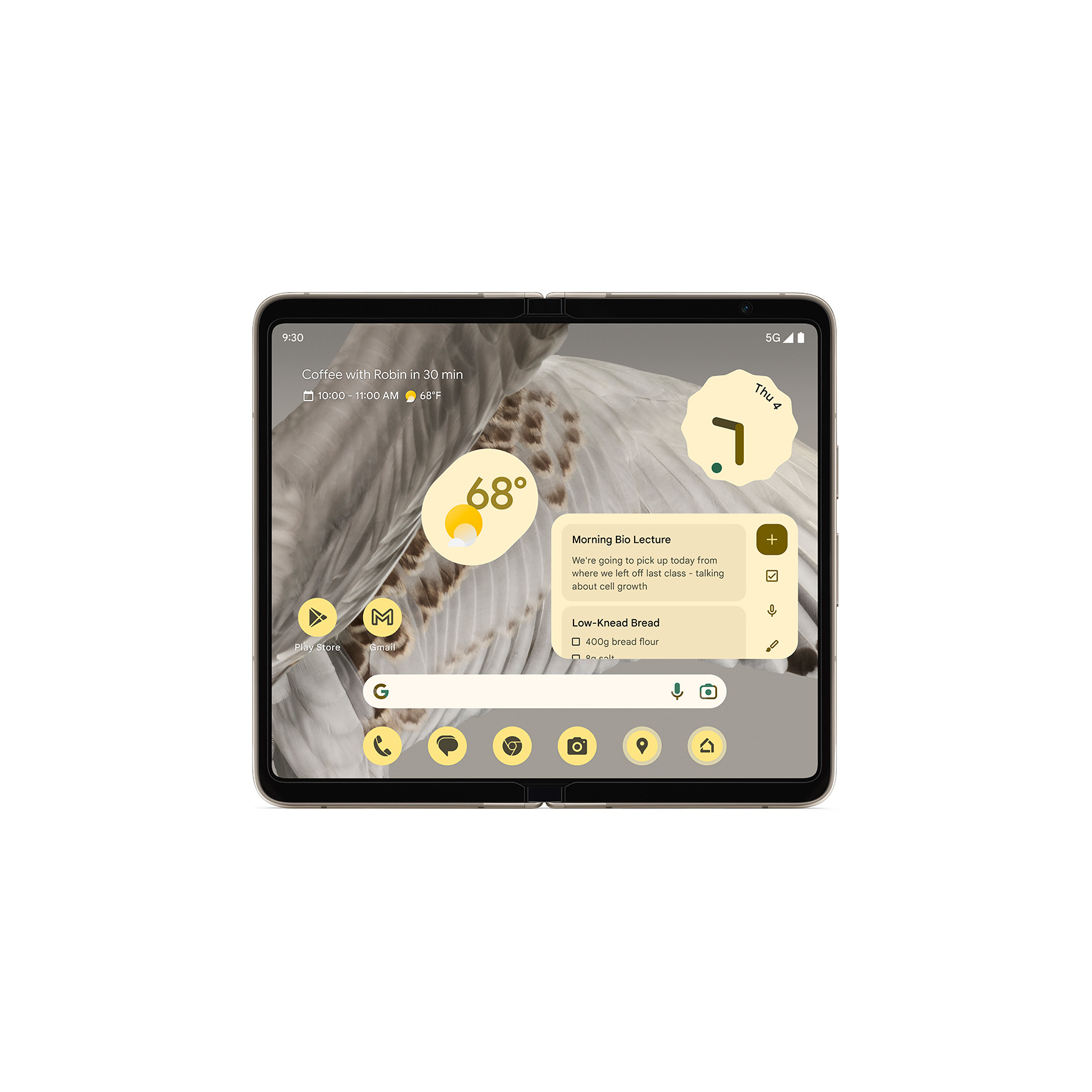Affiliate links on Android Authority may earn us a commission. Learn more.
Google Pixel Fold vs. OnePlus Open: Which foldable should you buy?
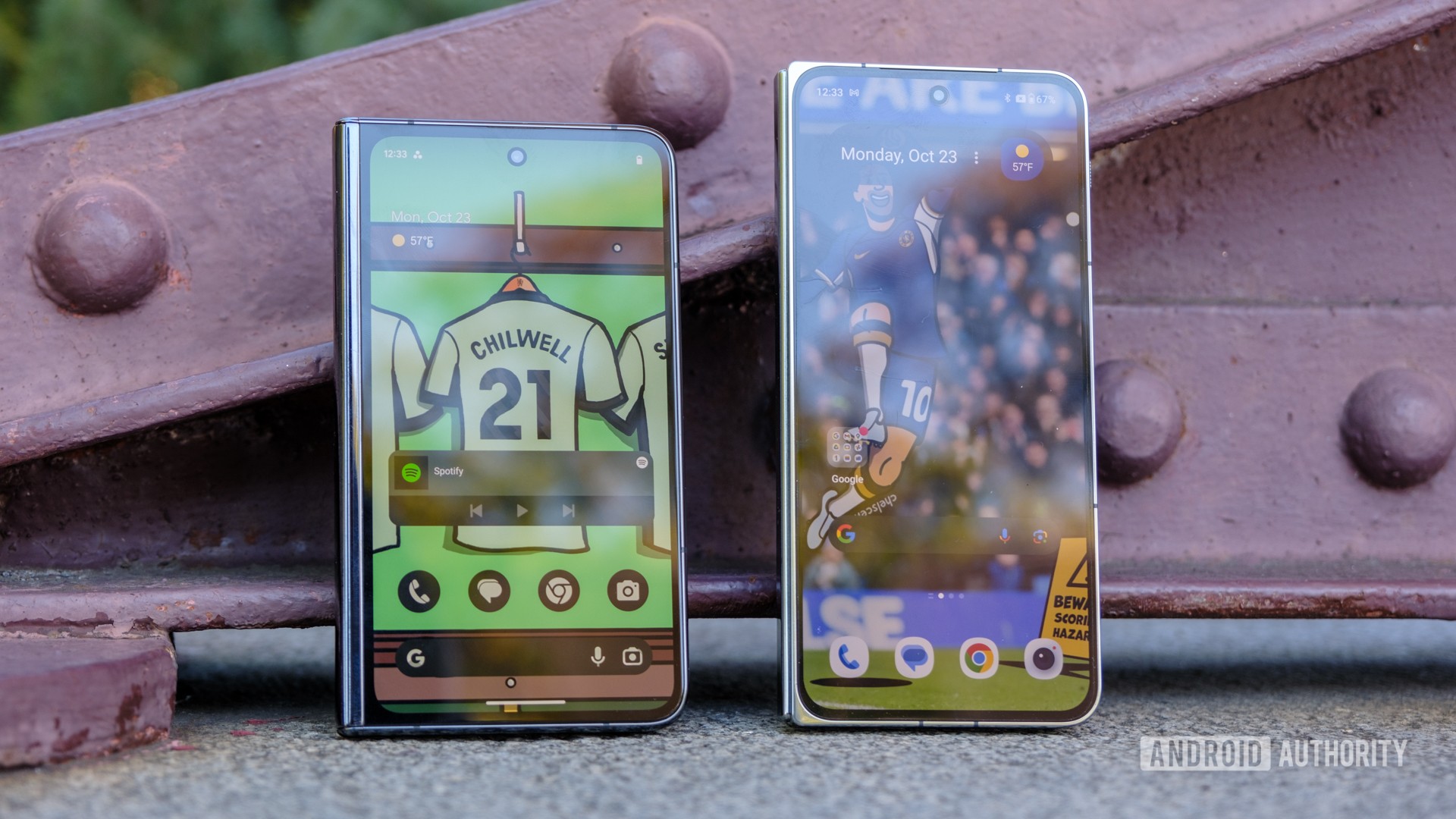
Nearly half a decade has passed since the first foldable phones hit the market, and we’re now finally seeing more manufacturers throw their hats in the ring. That trend continued in mid-to-late 2023 when both Google and OnePlus hopped onto the bandwagon with their first-generation foldables. But even though both smartphone makers have opted for a similar book-style form factor, the resulting smartphones have very little in common. So with that in mind, let’s compare the Google Pixel Fold vs the OnePlus Open and help you decide which one to buy.
- The OnePlus Open sports larger (and taller) displays than the Pixel Fold. Even so, it’s significantly lighter than Google's foldable.
- The Pixel Fold's IPX8 rating offers better water resistance protection vs. the OnePlus Open’s IPX4 rating.
- The OnePlus Open is powered by the Snapdragon 8 Gen 2, while Google has opted for its own Tensor G2 SoC.
- With its $1,699 launch price, the OnePlus Open undercuts the Google Pixel Fold. The former’s base model also includes more RAM and storage.
- The OnePlus Open features 67W fast charging, which is far quicker than the Pixel Fold.
- The Pixel Fold is alone in offering wireless charging, with speeds up to 7.5W.
- OnePlus is committing to an extra year of Android updates compared to Google, but both smartphones will receive five total years of security patches.
Google Pixel Fold vs. OnePlus Open: Specs
| OnePlus Open | Pixel Fold | |
|---|---|---|
Displays | OnePlus Open Exterior: - 6.31-inch AMOLED - 10-120Hz refresh rate (LTPO) - 2,484 x 1,116 resolution - 20:9 aspect ratio - Ceramic Guard Interior: - 7.82-inch AMOLED - 1-120Hz refresh rate (LTPO) - 2,440 x 2,268 resolution - 2,800 nits peak brightness | Pixel Fold Exterior: - 5.8-inch Dynamic AMOLED - 120Hz refresh rate - 2,092 x 1,080 - 17.4:9 aspect ratio - Gorilla Glass Victus cover Interior: - 7.6-inch Dynamic AMOLED - 120Hz refresh rate - 2,208 x 1,840 resolution - Up to 1,450 nits brightness |
Processor | OnePlus Open Qualcomm Snapdragon 8 Gen 2 | Pixel Fold Google Tensor G2 |
RAM | OnePlus Open 16GB | Pixel Fold 12GB |
Storage | OnePlus Open 512GB No expandable storage | Pixel Fold 256GB / 512GB No expandable storage |
Power | OnePlus Open 4,805mAh dual-battery 67W wired charging No wireless charging 80W charger in box | Pixel Fold 4,821mAh 21W wired charging 7.5W wireless charging |
Cameras | OnePlus Open Exterior rear: - 48MP wide, 1.12μm, OIS, PDAF, ƒ/1.7 - 48MP ultra-wide, 0.8μm, ƒ/2.2, AF - 64MP telephoto, 0.7μm, OIS, 3x zoom (120x digital), ƒ/2.6 Exterior front: - 32MP, ƒ/2.4, 0.7μm Internal front: - 20MP, 0.7μm, ƒ/2.2 | Pixel Fold Exterior rear: - 48MP wide (ƒ/1.7, 1/2-inch sensor, 0.8μm, OIS, CLAF) - 10.8MP ultrawide (ƒ/2.2, 1/3-inch sensor, 1.25μm) - 10.8MP telephoto (ƒ/3.05, 1/3.1-inch sensor, 1.22μm, 21.9° FoV, 5x optical zoom) Front: - 9.5MP wide (ƒ/2.2, 1.22μm) Internal: - 8MP wide (ƒ/2.0, 1.12μm) |
Audio | OnePlus Open Stereo speakers Dolby Atmos support No 3.5mm headphone port | Pixel Fold Stereo speakers Spatial audio support Triple-microphone No headphone jack |
Durability | OnePlus Open IPX4 | Pixel Fold IPX8 |
Biometrics | OnePlus Open Side-mounted capacitive fingerprint sensor | Pixel Fold Side-mounted capacitive fingerprint sensor |
SIM | OnePlus Open Dual nano-SIM tray eSIM support | Pixel Fold Dual-SIM (Single nano-SIM + eSIM) eSIM support |
Software | OnePlus Open Android 13 OxygenOS 13.2 | Pixel Fold Android 13 Pixel UI |
Dimensions and weight | OnePlus Open Folded dimensions: - 153.4 x 73.3 x 11.7mm (Green)/11.9mm (Black) Unfolded dimensions: - 153.4 x 143.1 x 5.8mm (Green)/5.9mm (Dusk) Weight: - 239g (Black)/245g (Green) | Pixel Fold Folded: - 139.7 x 79.5 x 12.1mm Unfolded: - 139.7 x 158.7 x 5.8mm Weight: - 283g |
Colors | OnePlus Open Emerald Dusk (Green), Voyager Black | Pixel Fold Obsidian Porcelain |
It’s not often that smartphones in the same market segment and price bracket differ dramatically these days, but the Pixel Fold and OnePlus Open have bucked that trend.
OnePlus’ flagship-killer DNA is evident in the company’s first foldable, with the OnePlus Open packing top-of-the-line specifications like UFS 4.0 storage, 16GB of RAM, and LTPO display technology. The Pixel Fold’s UFS 3.1 storage, 12GB of RAM, and 120Hz OLED display will still deliver a premium experience, but it’s clear that Google didn’t set out to build the most cutting-edge foldable on the market.
OnePlus has crammed cutting-edge specs in its first-ever foldable.
The OnePlus Open is powered by Qualcomm’s Snapdragon 8 Gen 2. You’ll find the same chipset inside many of the best Android phones of 2023. The Pixel Fold, meanwhile, relies on Google’s now-last generation Tensor G2 SoC, which first debuted in the Pixel 7 series. The latter delivers many Pixel-exclusive AI features that you won’t find in other smartphones, including the OnePlus Open.
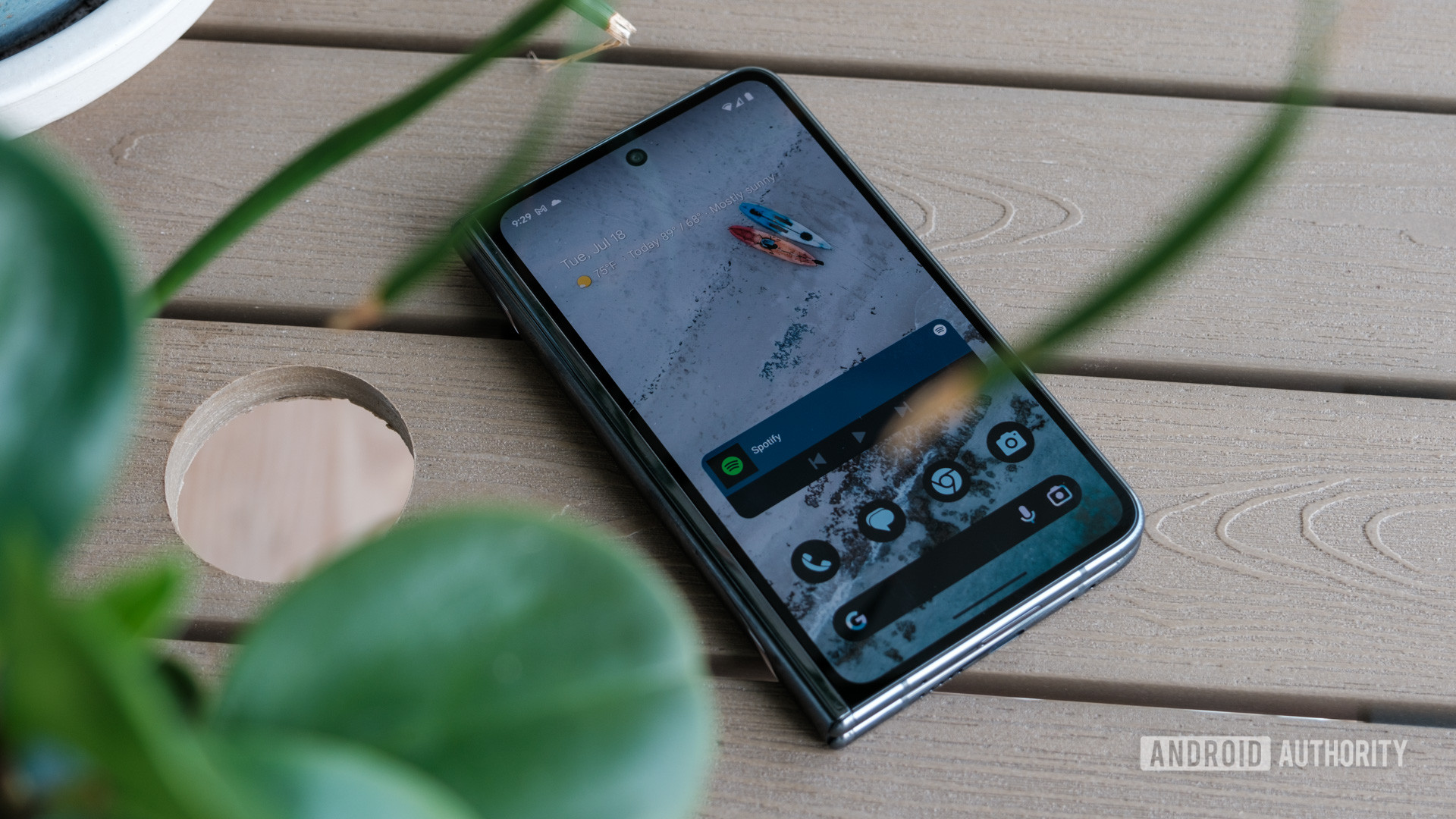
While both smartphones offer enough raw processing power to sail through everyday tasks, the OnePlus Open has a big efficiency advantage. In our testing, we found that the Tensor G2 tends to run considerably warmer than the competition. For this reason, the OnePlus Open performs much better in sustained workloads like video editing and gaming.
In terms of water resistance, the pendulum swings back in Google’s favor. With its IPX8 rating, the Pixel Fold boasts better immersion capabilities (not that we’d recommend testing it). The OnePlus Open, meanwhile, offers a more basic IPX4 protection. You shouldn’t have to worry about accidental splashes or getting caught in the rain with either smartphone, though.
The Pixel Fold offers significantly better water resistance.
OnePlus’ software update policy has come a long way over the years and we’re pleased to report that the company continues that trend with its first foldable. The OnePlus Open launches with Android 13 and will receive four years of software updates. That’s technically one extra year compared to the Pixel Fold’s three-year Android update guarantee. However, both smartphones offer the same five-year security update support window.
Google Pixel Fold vs. OnePlus Open: Size comparison
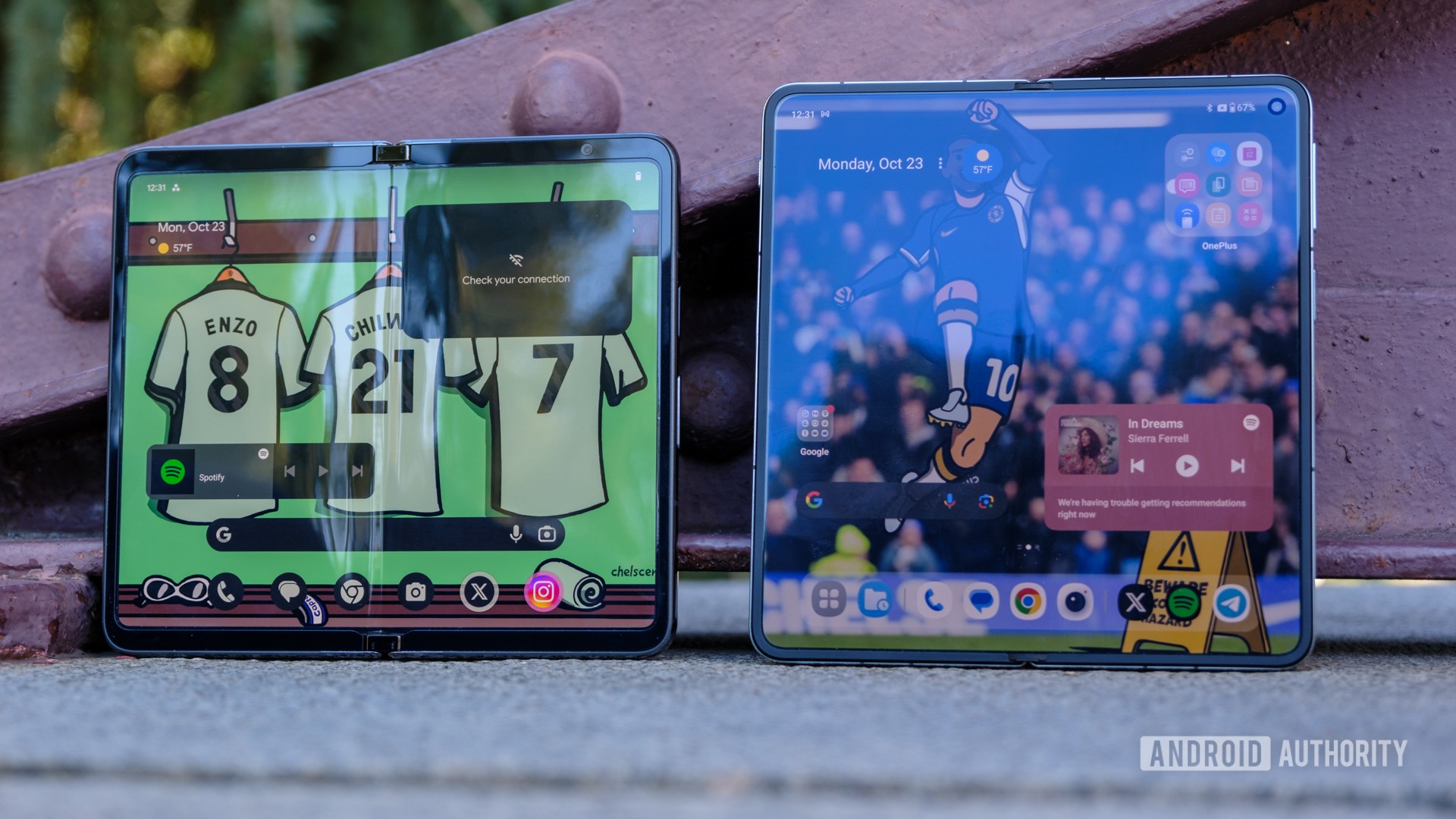
The Pixel Fold has a smaller 5.8-inch cover screen vs. the OnePlus Open’s 6.31-inch display. The latter is much closer to the size of a conventional smartphone, but some may prefer the Pixel Fold’s shorter and wider footprint too. When unfolded, the difference in screen sizes drops to a meager 0.2 inches. However, the OnePlus Open has much sleeker bezels on the inside, making it not that much larger than the Pixel Fold.
Which foldable’s form factor you prefer will ultimately boil down to personal preference. Google said it intentionally chose a passport-style design for the natural hand-feel. Meanwhile, OnePlus’ taller cover display delivers more practicality in apps designed for conventional smartphones.
The OnePlus Open is among the lightest foldables on the market. The Pixel Fold is 18% heavier.
As for weight, the OnePlus Open weighs just 239g, making it the lightest book-style foldable in North America. The Pixel Fold, meanwhile, takes the crown for the exact opposite. It’s approximately 18% heavier at 283g. That’s a difference you’ll almost certainly notice in day-to-day use.
Google Pixel Fold vs. OnePlus Open: Cameras
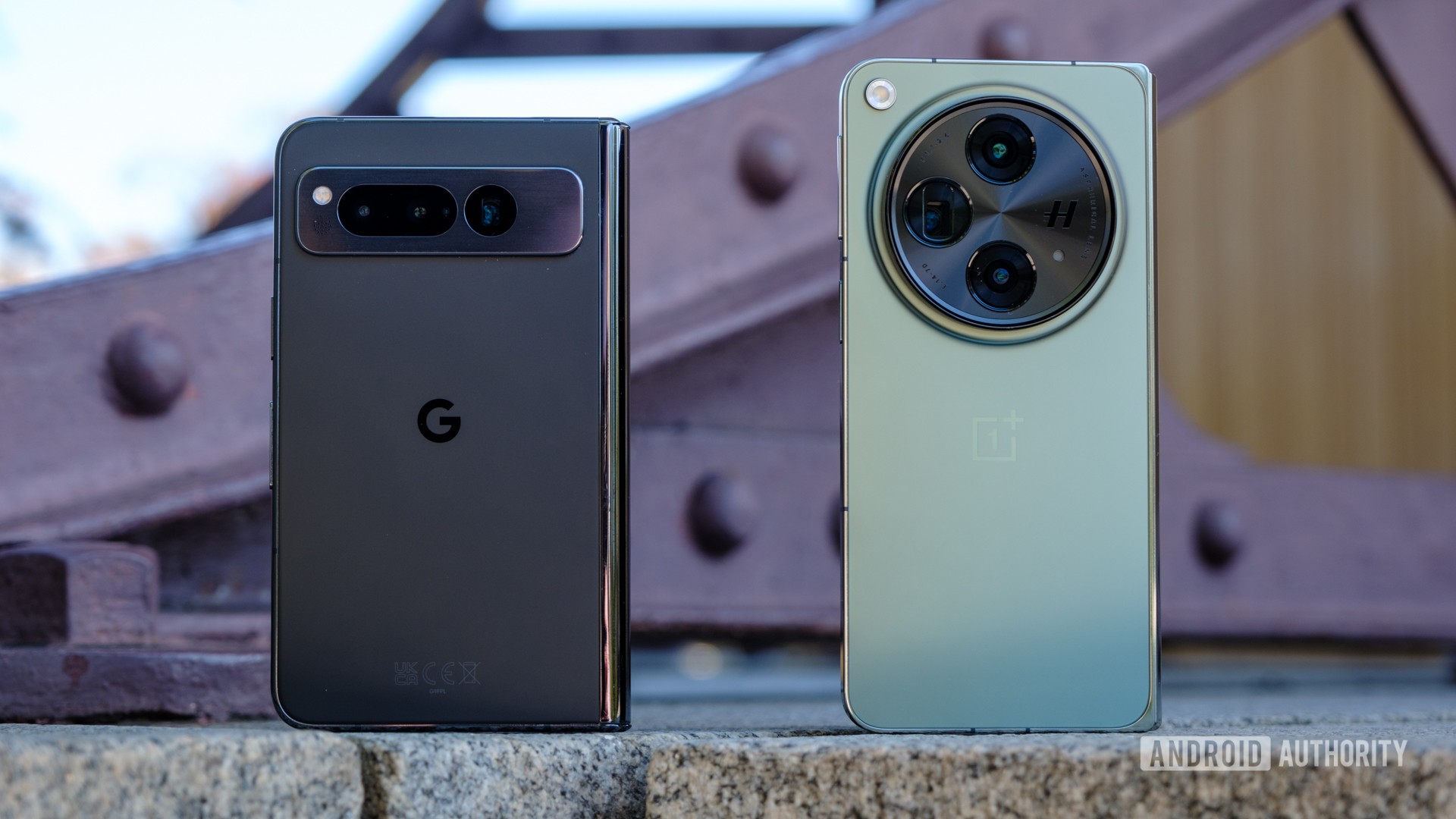
Foldable cameras have always suffered a bit compared to their conventional counterparts due to the form factor’s space constraints. However, we were still very pleased with the Pixel Fold’s results in our review. In fact, we even went as far as to say that Google’s smartphone delivered the best camera experience of any foldable to date. Here are some sample shots from our Pixel Fold review.
We have explored the OnePlus Open’s camera capabilities in a dedicated article, but in summary, it boasts some impressive specs that look to challenge the Pixel Fold’s throne. The OnePlus foldable’s 48MP ultrawide and 64MP 3x telephoto lens, in particular, have larger sensors than other foldables. We’d even go as far as to say that it’s the best camera system on any 2023 foldable. Google has managed to overcome hardware limitations with computational photography in the past but OnePlus has packed serious raw power in its debutant foldable. Here are some camera samples:
The OnePlus Open also boasts higher-resolution selfie cameras. It offers a 32MP shooter on the cover screen and a 20MP punch-hole sensor on the inside. Google’s 8MP and 9.5MP cameras will do a decent job too, though.
Google Pixel Fold vs. OnePlus Open: Battery life and charging
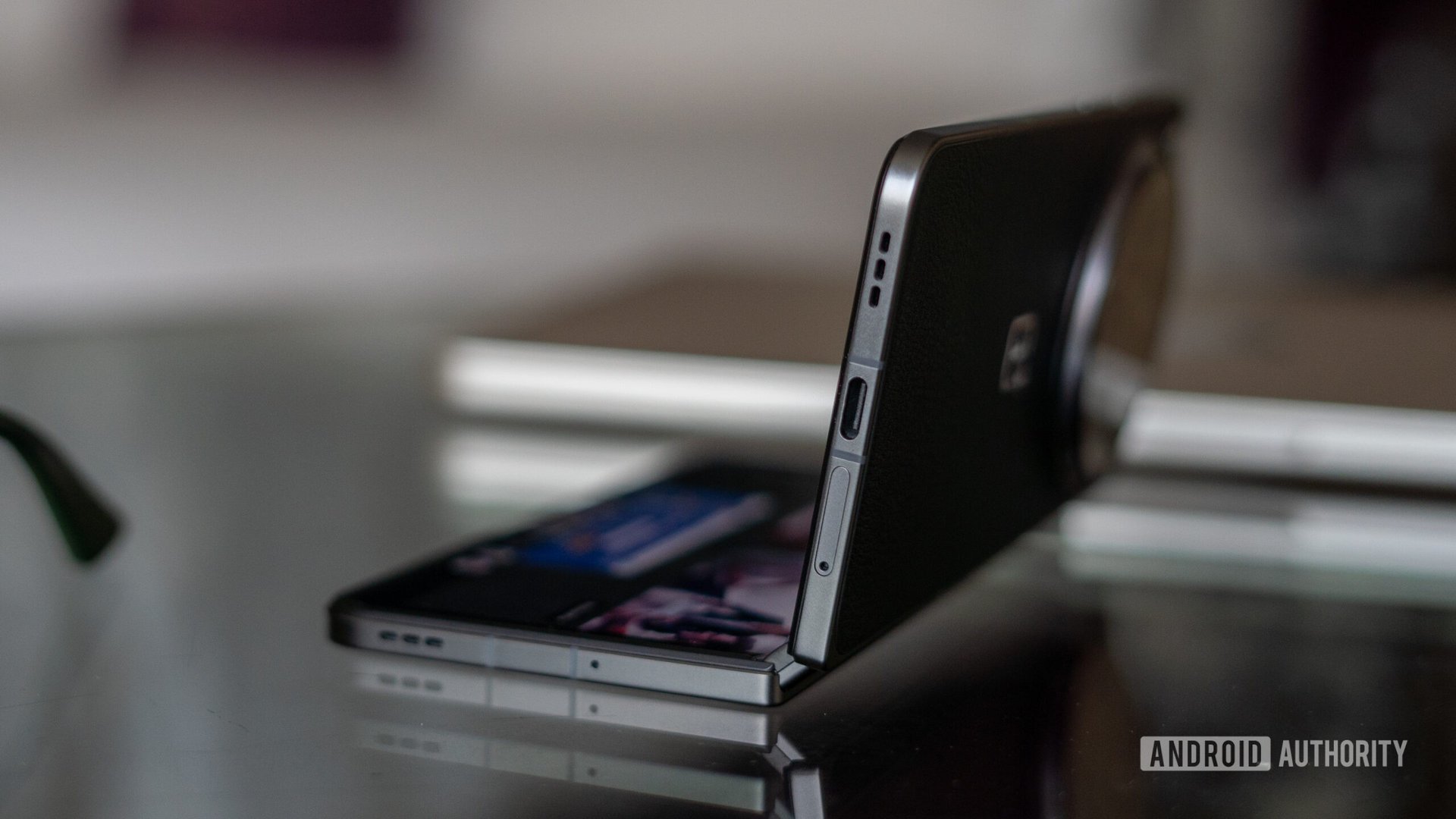
The OnePlus Open and Pixel Fold have similar battery capacities at approximately 4,800mAh apiece. However, the OnePlus Open has two hidden advantages that allow it to last longer than Google’s foldable in the real world. I’ve already talked about power efficiency with regards to the Snapdragon 8 Gen 2 SoC, but the OnePlus Open also has LTPO displays. This allows it to downclock its refresh rate and consume less battery in the process.
In our OnePlus Open review, we found that the foldable delivered six hours of screen-on time over a 24 hour period. That’s excellent battery life compared to the Pixel Fold, which may not last the full day if you’re a similarly spirited user.
The OnePlus Open also has the upper hand in the charging department as it can pull up to 67W from the wall. Google, meanwhile, recommends its 30W adapter but the Pixel Fold only really charges at 23W. Based on those numbers and our experience with OnePlus’ SuperVOOC charging, expect the Pixel Fold to take twice as long for a full charge.
The OnePlus Open will last longer and charge quicker than the Pixel Fold.
That said, Google manages to claw back some points in its favor with the Pixel Fold’s support for 7.5W wireless charging. The OnePlus Open, meanwhile, doesn’t include wireless charging in any capacity. However, it does ship with an 80W wired charger in the box, meaning you won’t have to shell out any extra to get the fastest charging speeds.
Google Pixel Fold vs. OnePlus Open: Price and availability
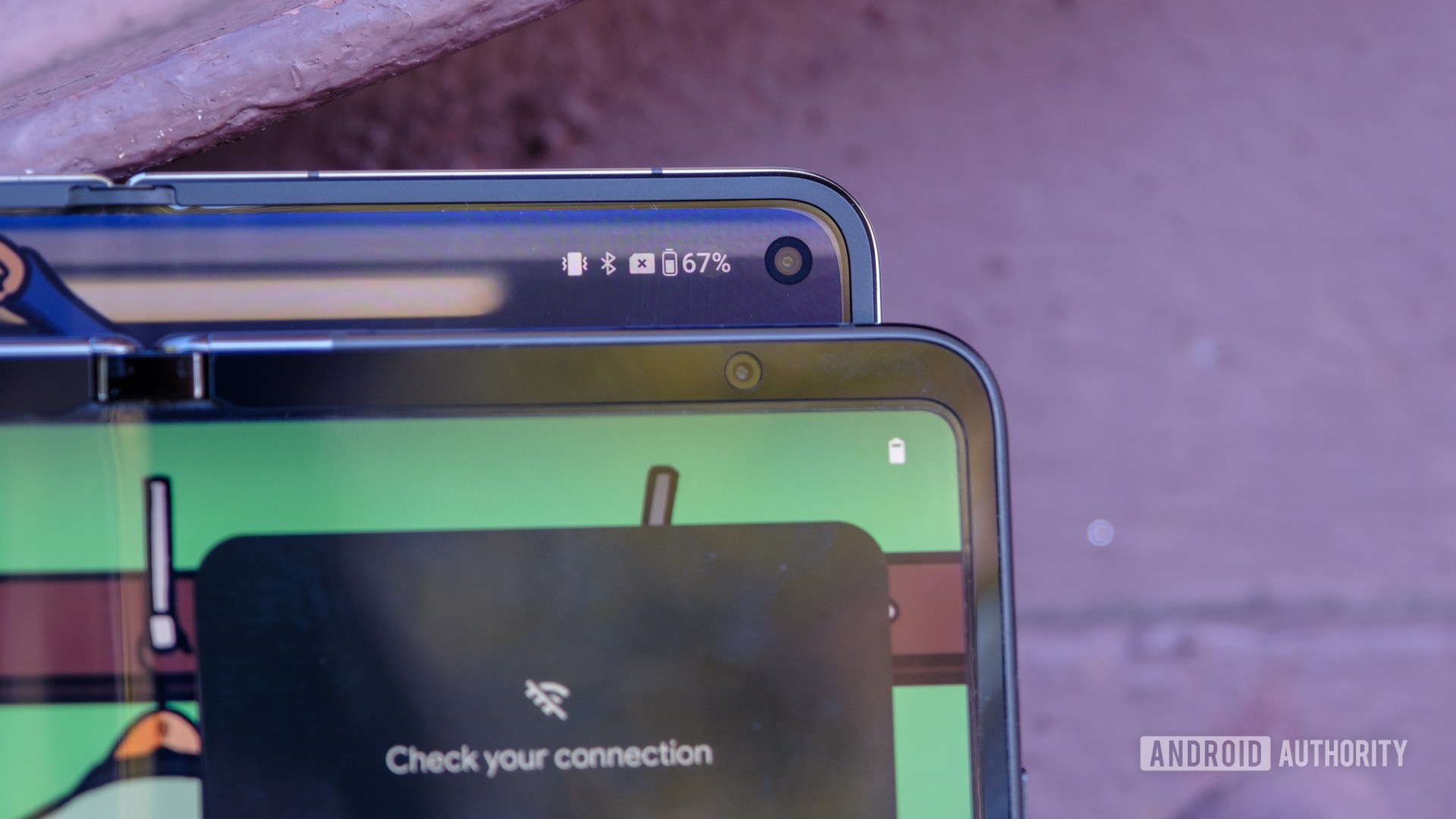
- Pixel Fold: Starts at $1,799
- OnePlus Open: Starts at $1,699
OnePlus has gone on the offensive with the pricing of its first foldable, undercutting both Samsung and Google with the Open’s $1,699 launch price. Even better, this aggressive price nets you 16GB of RAM and 512GB of storage. That’s a lot more than the Pixel Fold’s 12GB of RAM and 256GB of storage, which you’ll also have to pay $100 more for.
The OnePlus victory lap doesn’t end there either. The company also offers a $200 discount in exchange for any smartphone, regardless of condition, in the US. That’s a big subsidy if you have an old, even cracked smartphone lying around somewhere.
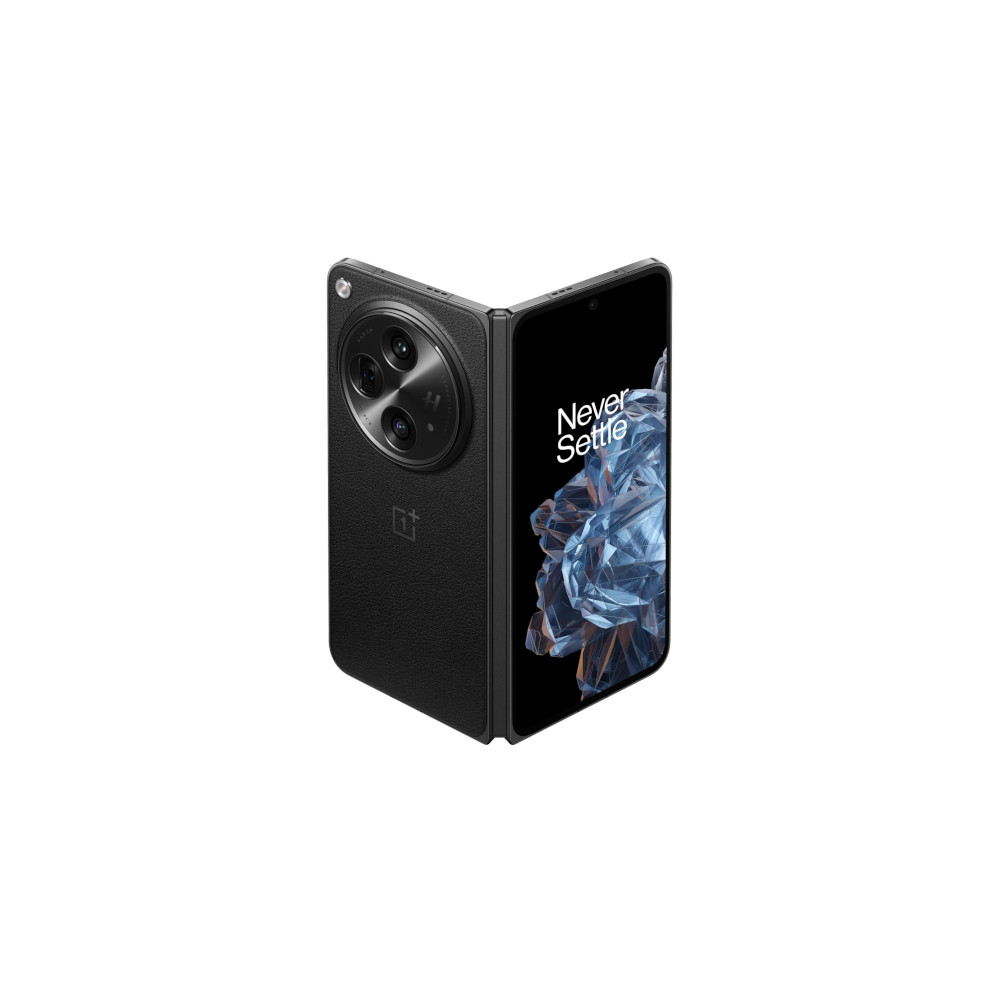
Google Pixel Fold vs. OnePlus Open: Which one should you buy?
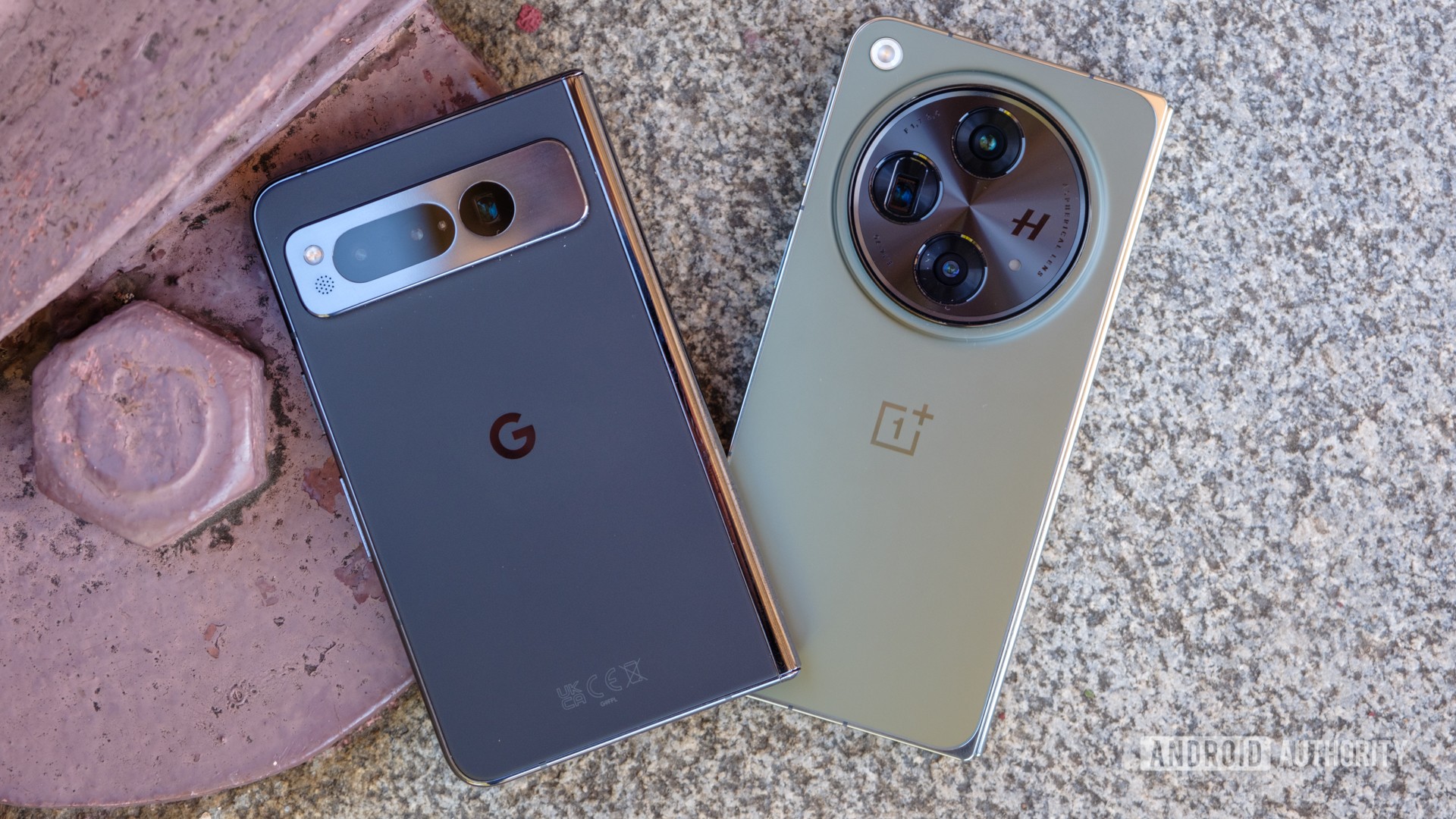
Even though the OnePlus Open represents the company’s first foray into the North American foldable market, it’s a strong showing. It delivers cutting-edge internals at a competitive price point and an impressive software update policy to boot. The Pixel Fold, meanwhile, does lack some shine on its spec sheet. However, it still occupies a smaller footprint and enjoys Google’s computational photography strengths.
While both foldables cost a pretty penny, OnePlus squeezes a victory in the value department. The guaranteed $200 trade-in discount makes it even more attractive. That said, you might be able to find Google’s smartphone at a deeper discount since it launched earlier in 2023.
As someone who will likely get a lot of use out of the cover display, the OnePlus Open looks like the better choice for me. Simultaneously, however, Google’s rich software ecosystem and AI features on the Pixel Fold seem equally tempting. Which foldable would you rather buy?
